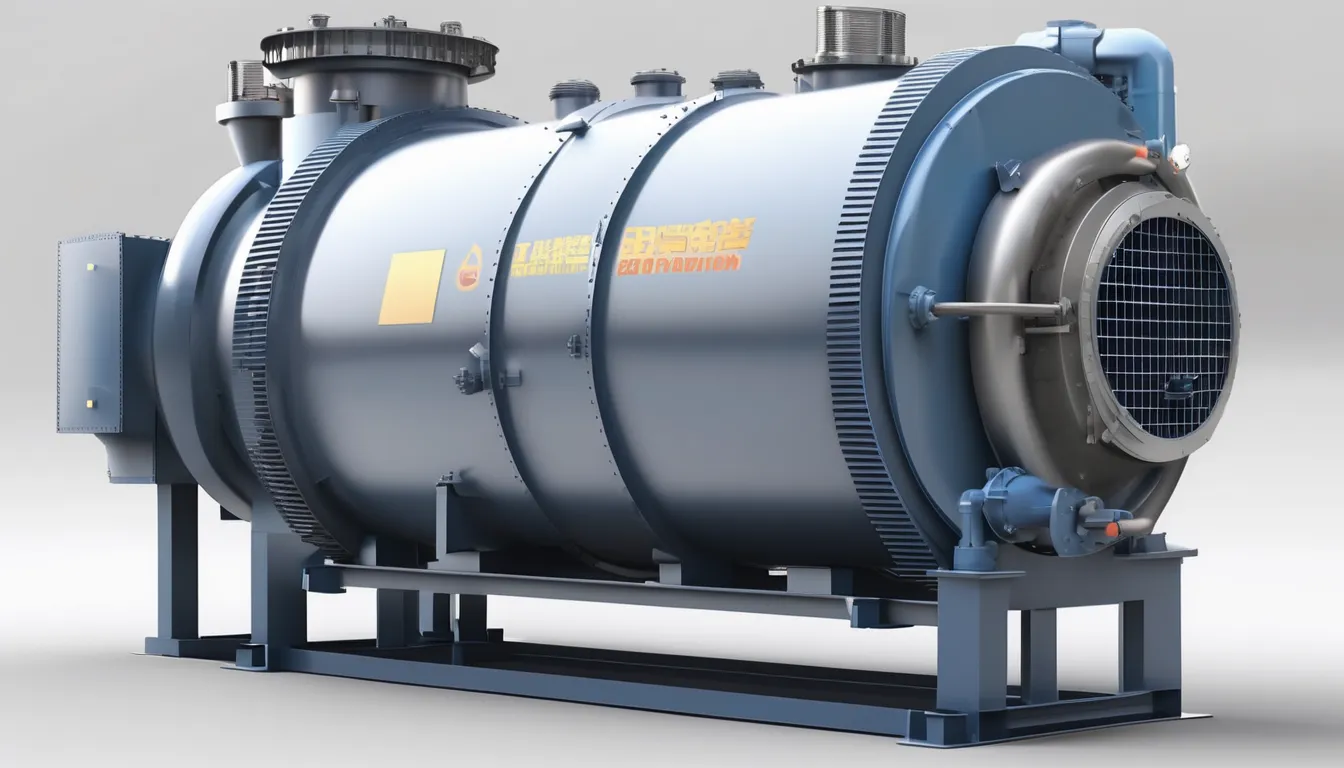Turbo Expanders in Renewable Energy Applications

When you think about renewable energy applications, you might not immediately consider the role of turbo expanders. Yet, these devices are essential in maximizing efficiency across various systems, from biomass gasification to geothermal energy. By converting high-pressure gas and steam into mechanical energy, they significantly enhance energy extraction. But there’s more to their impact, particularly in waste heat recovery. As technology evolves, turbo expanders are set to play an even bigger role in the push for sustainability. What innovations are on the horizon, and how will they transform the renewable energy landscape?
Understanding Turbo Expanders
Turbo expanders, often referred to as turbines, play a crucial role in various renewable energy systems. These devices convert thermal energy into mechanical energy, making them vital for improving efficiency in energy conversion processes.
You’ll find turbo expanders used in numerous applications, particularly where high-pressure gas expands to lower pressure, enabling energy recovery.
When you consider how they work, think of the flow of gas moving through the expander. As the gas expands, it spins the turbine blades, generating mechanical energy. This energy can then drive generators or other machinery, contributing to the overall energy output of a system.
The efficiency of turbo expanders is critical, as even small improvements can lead to significant energy savings.
It’s important to note that design and materials matter. High temperatures and pressures can stress components, so selecting the right materials is essential for durability and reliability.
Applications in Biomass Gasification
In recent years, the integration of turbo expanders in biomass gasification systems has gained significant traction. You’ll find that these devices play a crucial role in enhancing overall efficiency, enabling you to extract more energy from biomass feedstocks.
When you use turbo expanders, they convert the high-pressure gas generated during gasification into useful mechanical energy. This mechanical energy can be harnessed to drive generators or other equipment, reducing your reliance on external power sources.
Moreover, the implementation of turbo expanders allows for improved heat recovery, which can further optimize the gasification process. By capturing and reusing excess heat, you’re not only increasing efficiency but also lowering operational costs.
As you explore biomass gasification projects, you’ll appreciate how turbo expanders can enhance the sustainability of your energy systems. They help minimize greenhouse gas emissions by maximizing the conversion of biomass to useful energy.
In addition, the adaptability of turbo expanders means they can be tailored to suit various biomass types and gasification technologies, making them a versatile choice for enhancing energy production.
Role in Geothermal Energy
Many geothermal energy systems rely on turbo expanders to optimize their efficiency and energy output. These devices convert high-pressure steam from geothermal wells into mechanical energy, which can then be transformed into electricity. By utilizing turbo expanders, you’re able to extract more energy from the steam, leading to improved overall system performance.
In a geothermal plant, the steam typically passes through a turbine, where it expands and cools. This is where turbo expanders shine, as they increase the energy extraction from the steam by enabling it to do more work before it condenses. The expanded steam drives the turbo expander, which is connected to a generator, converting kinetic energy into electrical energy.
You’ll also find that Turbo Expander manufacturer s contribute to the sustainability of geothermal energy by enhancing the use of available resources. They allow for the efficient capture of low-grade heat, making it feasible to tap into geothermal sources that might otherwise be underutilized.
As a result, incorporating turbo expanders in geothermal energy systems not only boosts energy output but also promotes a more sustainable and reliable energy solution for the future.
Waste Heat Recovery Solutions
Waste heat recovery solutions are crucial for enhancing energy efficiency across various industries. By capturing and reusing heat that would otherwise be wasted, you can significantly lower energy consumption and reduce operational costs. One effective method involves using turbo expanders, which convert waste heat into mechanical energy, driving generators for electricity production.
Here’s a quick overview of different waste heat recovery solutions:
| Solution Type | Benefits |
|---|---|
| Heat Exchangers | Efficient heat transfer |
| Turbo Expanders | Converts heat to electricity |
| Combined Heat and Power | Simultaneous power and heating |
| Organic Rankine Cycle | Utilizes low-grade heat |
Implementing these technologies can help you not only meet regulatory requirements but also enhance your sustainability efforts. By investing in waste heat recovery, you’re making a smart move towards long-term energy savings and reduced environmental impact. Whether you’re in manufacturing, power generation, or even food processing, there’s a solution tailored for your specific needs. Embracing these methods can lead to substantial returns on investment while promoting a cleaner, greener future.
Future Trends and Innovations
As the demand for renewable energy grows, innovative technologies are emerging to enhance the efficiency and effectiveness of systems like turbo expanders. You’ll notice a shift towards integrating advanced materials and designs that improve performance while reducing maintenance costs.
For instance, manufacturers are increasingly utilizing lightweight composites that can withstand high-stress conditions, thus boosting the durability of turbo expanders.
Moreover, digital twin technology is gaining traction. By creating virtual replicas of physical systems, you can analyze performance in real-time, allowing for predictive maintenance and optimization. This means you won’t just react to issues; you’ll anticipate them.
Additionally, the rise of artificial intelligence in energy management systems means turbo expanders can now operate more intelligently. AI algorithms can analyze operational data, adjusting parameters for maximum efficiency.
You might even see the implementation of hybrid systems that combine turbo expanders with other renewable technologies, maximizing energy recovery.
Lastly, as energy storage solutions improve, you’ll find turbo expanders playing a crucial role in balancing supply and demand, ensuring a steady flow of energy.
The future holds exciting possibilities, and staying informed will help you harness these innovations effectively.
Conclusion
In conclusion, turbo expanders are essential for boosting efficiency in renewable energy systems. Whether you’re looking at biomass gasification, geothermal energy, or waste heat recovery, these devices unlock significant potential for energy optimization. With ongoing advancements in technology and materials, you can expect turbo expanders to play an even bigger role in promoting sustainability and energy savings. Embracing these innovations can help you contribute to a greener future while maximizing energy extraction in your applications.



